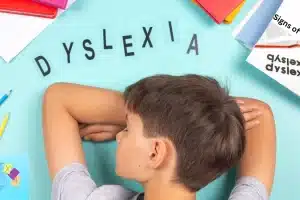The best time to sign your children up for a sport is when they express an interest in playing. That way, you know your child really wants to participate. In addition, most children really aren’t ready for organized sports until around age six. Younger children are still working on mastering basic movements. For them, running, playing catch, and riding a tricycle are great choices.
by Stacey Schifferdecker
Once upon a time, in a backyard just down the street, children spent their afternoons and Saturdays playing baseball or kickball with a rock for third base and imaginary runners filling out too-small teams. Now, children can join organized sports teams as young as age 4 and take baby ball lessons even earlier. While such activities can give children a head start on lifelong fitness, parents need to think carefully about what age to enroll their children in sports and what sport to choose.
The best time to sign your children up for a sport is when they express an interest in playing. That way, you know your child really wants to participate. In addition, most children really aren’t ready for organized sports until around age six. Younger children are still working on mastering basic movements. For them, running, playing catch, and riding a tricycle are great choices. If you want to enroll in a class, try something like a tumbling or swimming class specially aimed at youngsters. Above all, set a good example by practicing fitness yourself.
If you have a favorite sport, share it with your children and maybe they’ll catch the bug too. If you’re an avid golfer, you can play at home with your kids by getting a skytrak launch monitor. Keep in mind, though, that the best sports for all kids are one they enjoy. So if they really want to play soccer, start learning about corner kicks, even if you were the star pitcher of your baseball team. Of course, you should encourage your kids to try different sports, especially when they are young. You can introduce them to paddleball sports by taking them to a sports store and letting them choose their own Custom Pickleball Paddles. Focusing intently on one sport at a young age tends to lead to injuries and burn-out. Also don’t just focus on team sports; individual sports like gymnastics, running, tennis, martial arts, swimming, and wrestling are all great exercise too. There are kids martial arts classes that your kids can take to get them started with the martial arts of their choice.
Once you and your children have settled on a sport, you need to choose a league. For young children, look for a league that emphasizes safety and participation. All children should get to play every game and should get to rotate positions. Once children are 11 or 12, they may be ready for more competition, but you still want a coach who stresses safety, teamwork, and fairness rather than winning at all costs.
You should also check out how often the team will be practicing. Some children’s sports teams practice four days a week—this is too much for children! Practicing once or twice a week for 60-90 minutes is enough.
As a sport parent, you also have an important role: to attend as many games and practices as possible, to be a good sport, and to be encouraging and positive. Emphasize fun, teamwork, effort, and improvement, not winning. In addition, you should not be coaching from the sidelines or criticizing the referees. If you feel the coach is not treating your child fairly, talk to the coach about it calmly and in private.
What if your children decide to quit their sport? If they are signed up for a long-term sport such as gymnastics or martial arts, they may just want a break or want to try something else. Talk to them and see what they are thinking. Remember that your goal is to encourage your children to be fit, happy, and active, not to go to the Olympics or get a sports scholarship.
For team sports, keep in mind that most children’s sports leagues are six to eight weeks long. Out of fairness to their teammates and to teach perseverance, you should encourage your children to finish the season. Talk to them about why they want to quit, and help them think of alternatives to get through the season. If they just can’t make it through the season, go to the coach with your children and have them explain why they are quitting.
“Practice sessions that last longer than 2 hours are hard to justify,” says Zembower. “An hour to 90 minutes is about right. When practices last longer, children lose concentration and energy.”
“Our parents are required to sign a Parents’ Code of Ethics,” said Charles Bollings, president of the Sandlot Football League, which includes teams in Botetourt, Franklin and Roanoke counties. “It’s a handout given to parents to read over. They have to sign it before their child can play.”
You can find the Code of Ethics for coaches, parents and players on area parks and rec Web sites. It asks for good sportsmanship through a positive attitude; treat others with respect; and to put the emotional well-being of the children ahead of the desire to win.
John Heil, a sports psychologist in Roanoke, says the same rules of parenting apply in a sports environment as in other environments. Parents should model the behavior they hope to see from their children.
“They’re showing their children, ‘This is how I think you should act as an adult,’ ” said Heil.
Heil, chairman of Sports Medicine & Science for U.S. Fencing, said that in addition to having fun, children should be learning how to deal with emotions when playing sports. Sports can teach how to manage the stress and emotions from success or failure. Athletic competition also can foster the discipline needed to work toward a goal. He calls these life skills.
It is difficult for parents not to coach from the sidelines, but parents should be parents and let the coaches coach.
wrestling earned high marks from sports medicine professionals as one of the best sports for children, offering strong cardiovascular conditioning and a low incidence of injury. If your child does get a sport injury make sure you visit a sport injury treatment center.
The best sport for a child is one that the youngster finds fun and interesting.
The benefits of sports for children are seemingly limitless. They can build character, self-esteem and social relationships, instill a sense of belonging and team building concepts, be a venue for social development-not to mention the positive effects that activity has on a child physically.
Biography
Stacey Schifferdecker is the happy but harried mother of three school-aged children—two boys and a girl. She is also a freelance writer, a Children’s Minister, a PTA volunteer, and a Scout leader. Stacey has a Bachelor’s degree in Communications and French and a Master’s degree in English. She has written extensively about parenting and education as well as business, technology, travel, and hobbies.
Stacey Schifferdecker is the happy but harried mother of three school-aged children—two boys and a girl. She is also a freelance writer, a Children’s Minister, a PTA volunteer, and a Scout leader. Stacey has a Bachelor’s degree in Communications and French and a Master’s degree in English. She has written extensively about parenting and education as well as business, technology, travel, and hobbies.
No part of this article may be copied or reproduced in any form without the express permission of More4Kids Inc © 2006











I agree that parents should let coaches be coaches. I have followed my four children through Varsity sports over many years and I have to say that I am very much a supporter. I hope you will read my own blog about it. It’s a very strong support system for our young people. Not the ONLY support system, it’s certainly not for everyone. For some kids it’s something else, but for those who love athletics, it’s outstanding. Please take a look: http://theresalbaker.typepad.com/bakerstreet/2007/12/kids-sports-and.html